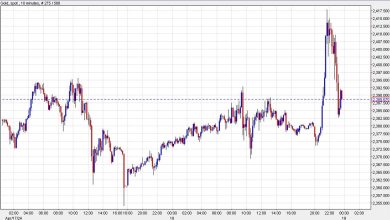A Third of Hiring Managers Don’t Want to Hire Gen Z or Older Workers

- About a third of hiring managers in a survey admitted to bias against Gen Z or older candidates.
- Forty-two percent of managers consider the age of job seekers when reviewing resumes, according to Resume Builder.
- Some career advisors suggest removing your graduation year from a resume and LinkedIn profile.
If you’re looking for a job and you’re a Gen Z or older worker, you may be out of luck, at least with some hiring managers.
In fact, according to a Resume Builder survey, 36% of hiring managers said they were biased against Gen Z candidates. And 34% admitted they resented older candidates.
Phew. Ageism is of course nothing new, although the survey results serve as a reminder that even in a strong job market, it can still be difficult to land a new job. It doesn’t help that people overlook your abilities because of your age or youth.
“You need to be aware of pitfalls like age bias,” Stacie Haller, chief career advisor at Resume Builder, told Business Insider. “You have to know the landscape you’re in.”
Resume Builder surveyed 1,000 hiring managers in March and found that 42% consider the age of job seekers when reviewing their resumes. To determine a candidate’s age, hiring managers count years of experience, look for year of graduation and even a photo, according to the survey.
Remove the year you graduated.
Some candidates might choose not to list the year they graduated on their resume, fearing that recruiters won’t do the math. In the survey, six in ten hiring managers said job seekers should “always” include the year they graduated, but about four in ten said candidates sometimes shouldn’t or don’t should never include the year.
Some TikTokers who focus on career advice encourage people to remove their graduation year so that younger candidates avoid getting criticized for not having enough experience and older workers do not be abandoned because they have too much.
This is something Haller approves of. “It matters that you got the degree. Does it matter if you got it last year or 20 years ago? It shouldn’t,” she said.
Haller added that recruiters determined to weed out groups they don’t like can often find a way, even when job candidates strip their resumes and LinkedIn profiles of indicators such as graduation dates . “If you’re someone who is really prejudiced against people, those people are going to Facebook to monitor you,” she said.
Of course, there are federal laws designed to protect workers over 40 from age discrimination; Some states also have provisions intended to protect younger members of the workforce, according to the U.S. Equal Employment Opportunity Commission, a federal agency. But proving age bias can be difficult, as BI has previously reported.
The Goldilocks generation.
So why are some hiring managers not supportive of younger or older workers? One reason could be that those looking to hire workers are often from a different generation, Haller said. More than six in ten of those surveyed were between 25 and 44 years old. This indicates, she says, that these managers – perhaps in their first role leading others – “seem to be prejudiced against everyone who is younger than them and older than them,” Haller said.
Among hiring managers who admitted to being biased against Gen Z job seekers, more than three-quarters cited younger workers’ lack of experience. About six in ten managers highlighted what they see as a trend among Gen Z to change jobs. And a similar proportion of respondents pointed to an unprofessional attitude among members of the younger tier of the workforce.
Among older workers, the accusations were not new either. Three-quarters of those surveyed fear that an older worker will soon retire. Nearly two-thirds were concerned that older candidates would have health issues, and nearly half of all hiring managers were concerned that older workers wouldn’t have enough experience with technology.
Showing up for an interview and looking too old can also be a problem for job candidates. In the survey, four in ten hiring managers said that if a candidate had an “aged” appearance, they would be less likely to consider them. And 36% of hiring managers said candidates over 60 should take steps to appear younger in interviews.
That’s the advice Shark Tank’s Barbara Corcoran, a septuagenarian, gave, according to a previous BI report.
Some hiring managers interviewed also gave advice to those with a youthful face: look older. A bright new face was a deterrent for 19% of hiring managers. More than a third of hiring managers recommended candidates ages 18 to 27 “try to appear older in interviews,” according to the survey.
Haller said that while bias hurts a number of job seekers, Gen Z faces a specific challenge as many young people have been sidelined early in their careers by the pandemic and n were not prepared to enter the job market. Some have started their jobs remotely, making it harder to learn skills and master basics like how to dress for the office.
Yet, she added, the fact that one generation offloads onto another is nothing new.
“We’re talking about every generation. Millennials, at one point, were entitled to it. Nobody wanted to hire them,” she said. “And now they are the age group that is prejudiced against everyone.”
businessinsider





